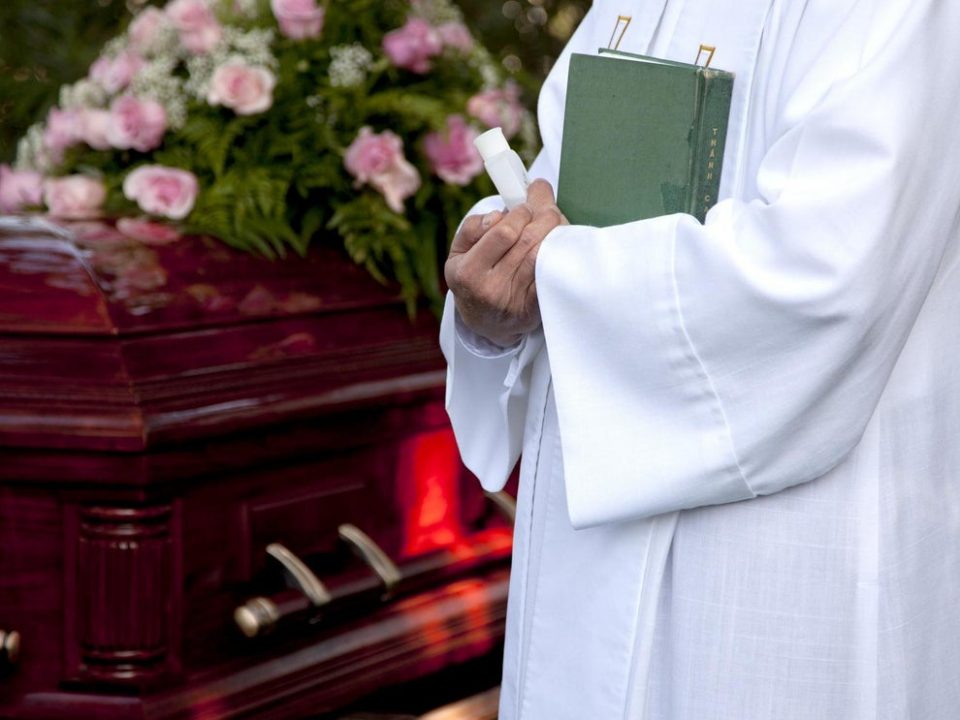Mother sues priest after saying teenage son's suicide was "against God"

The homily at the funeral of the Maison Hullibarger began in a fairly typical way: the priest recognized the anguish of the XNUMX-year-old's parents and asked God to use his words to enlighten them.
Then the message from the Reverend Don LaCuesta took a sharp turn.
“I think we don't have to call what's bad good, what's wrong right,” Mr. LaCuesta told mourners in his parish in Temperance, Michigan.
“Since we are Christians, we must say that what we know is the truth: that taking one's life is against God who created us and against all those who love us”.
Jeffrey and Linda Hullibarger were amazed. They did not disclose how their son died outside a close circle of friends and family, but Mr. LaCuesta continued to utter the word "suicide" six times and suggested that people who put an end to their lives were a I face God.
Almost a year after Mr. LaCuesta presided over the funeral on December 8, 2018, Linda Hullibarger filed a lawsuit against him, the Catholic Church of Our Lady of Mount Carmel and the Archdiocese of Detroit, claiming that the homily has irreparably damaged his already devastated family.
The action presented last Wednesday elevates the continuing effort of the hullibargers to obtain greater responsibility from the archdiocese to the legal realm.
"In my opinion, he made our son's funeral on his agenda."
Melinda Moore, a co-leader of the religious communities task force at the National Action Alliance for Suicide Prevention, said religious leaders are important partners in preventing suicide and reacting when it happens.
He said homilies like LaCuesta's reflect the stigma that suicide still carries in faith communities and often reinforce the feelings of responsibility, shame and anguish of loved ones.
Ms. Hullibarger argues in her case, filed in the Michigan State Court, that Mr. LaCuesta caused that kind of heartbreak after she and her husband turned to their longtime parish for comfort.
Mr. LaCuesta failed to show compassion when he met the couple to plan the funeral, the lawsuit says, and instead went right away to talk about the church's readiness.
The Hullibargers told the priest that they wanted the funeral to celebrate the life of Maison, a freshman from the University of Toledo who was studying criminal justice. The couple also wanted the funeral to spread a positive message about kindness to others, and the lawsuit says that Mr. LaCuesta has agreed to the requests.
After hundreds of people gathered in the church for the service, Mr. LaCuesta said in the homily that God can forgive suicide as he forgives all sins when people seek his mercy. He said that God could judge someone's entire life without just considering "the worst and last choice that person has made".
“Because of Christ's all-encompassing sacrifice on the cross, God can have mercy on any sin,” said Mr. LaCuesta, according to a copy of his homily published by the archdiocese.
"Yes, thanks to his mercy, God can forgive suicide and heal what has been broken."
The mourners were visibly upset to learn the cause of Maison's death, according to the cause.
Jeffrey Hullibarger walked over to the pulpit and whispered to Mr. LaCuesta to "please stop" talking about suicide, the lawsuit says, but the priest hasn't changed course. He allegedly ended the service without letting the family read the chosen scriptures or say the last words about the Maison.
Other people later told Linda Hullibarger that they heard equally insensitive homilies about their loved ones from Mr. LaCuesta, the lawsuit says.
The family met with Archbishop Allen Vigneron and Bishop Gerard Battersby, but were fired, according to the lawsuit. Mr. Battersby allegedly told Linda Hullibarger to "let it go."
The family asked for Mr. LaCuesta to be removed, but the priest told his parishioners that he preferred to stay and serve the parish community. It remains listed on the church's website.
Linda Hullibarger told The Post that she thinks the homily posted online is a more thoughtful version than what Mr. LaCuesta actually gave. The archdiocese declined to comment on this accusation.
Archdiocese spokeswoman Holly Fournier declined to comment on the cause, but pointed to a statement the archdiocese made in December to apologize for hurting the Hullibarger family, rather than comfort them.
“We recognize… that the family expected a homily based on how their loved one lived, not on how he died,” the statement said.
"We also know that the family was further hurt by the father's choice to share the Church's teaching on suicide, when the emphasis should have been more on God's closeness to those who mourn."
The Catholic Church has long argued that suicide contradicts each person's responsibility to protect the life God has given them.
Until the Second Vatican Council in the 60s, people who committed suicide were not allowed to receive a Christian burial. The Catechism of the Catholic Church, approved by Pope John Paul II in 1992, argues that suicide is "gravely contrary to right self-love" but recognizes that many people who end their lives have a mental illness.
“Serious psychological disturbances, anguish or grave fear of discomfort, suffering or torture can reduce the responsibility of those who commit suicide,” says the catechism.
Many clergy members are not properly trained in suicide and don't know how to help the family and friends of a deceased person, said Ms. Moore, who is also a professor of psychology at Eastern Kentucky University.
He said religious leaders should listen to grief, express condolences, refer to the scriptures for guidance, and talk about how the deceased person lived, not just how they died.
“To say it's a sin, it's an act of the devil, to impose your thoughts on this and not really look at your church's teachings on this is something I think leaders of the faith shouldn't do,” Ms. Moore said.
The Washington Post